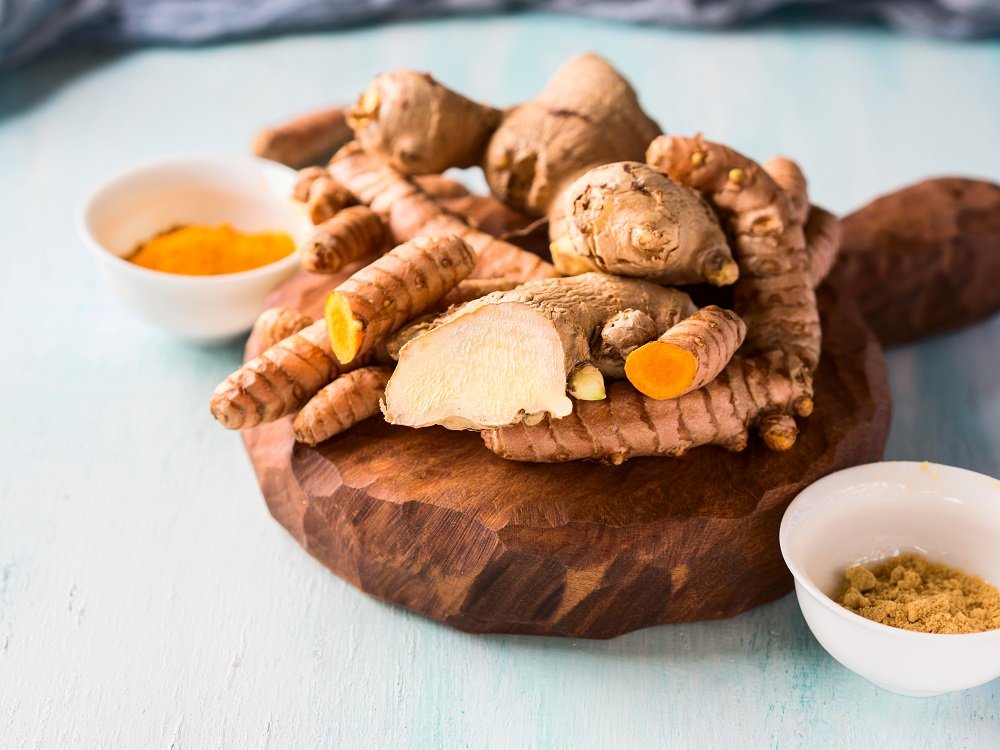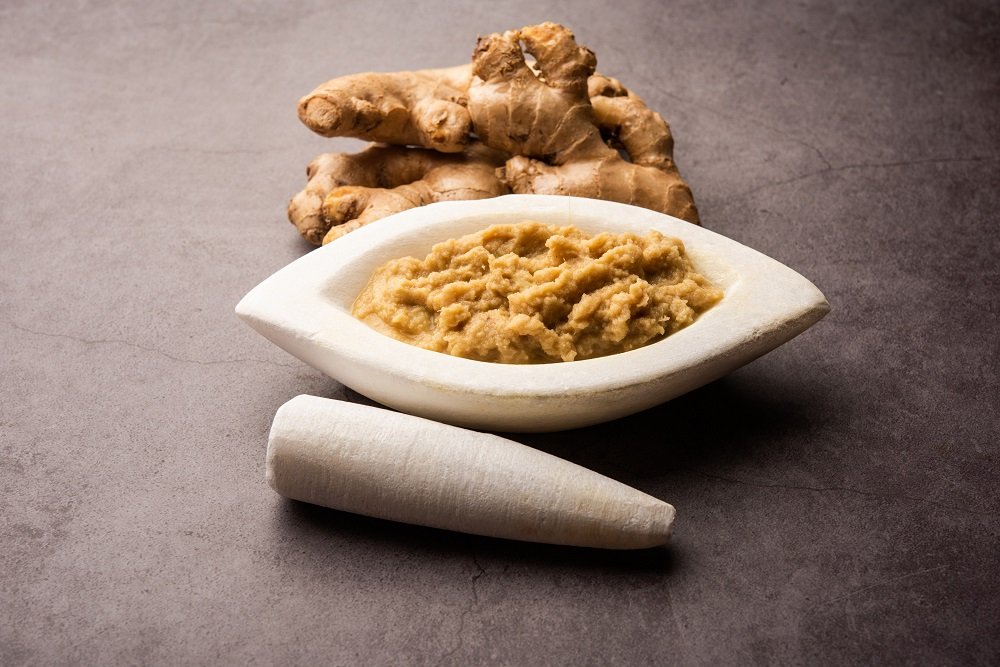I still remember the first time I tried ginger-turmeric tea. It was during a particularly stressful period in my life when I was constantly feeling sluggish and out of sync. A friend, who swore by natural remedies, handed me a steaming cup of golden-hued tea one morning and said, “Just trust me.” Skeptical but curious, I took my first sip—and instantly, I felt a warmth spreading through my body, almost like a comforting hug from the inside out. That one cup turned into a ritual, and before I knew it, ginger-turmeric tea became my morning staple.

Of course, I soon learned that my newfound morning elixir wasn’t just about the cozy feeling—it had centuries of wisdom behind it. Both ginger and turmeric have been used in Ayurveda and traditional medicine for thousands of years. In India, golden milk (turmeric-infused milk) has long been a go-to remedy for everything from inflammation to digestive issues. Meanwhile, ginger, often called the “universal medicine” in Ayurveda, has been prized for its ability to aid digestion, boost circulation, and strengthen immunity. Together, these two powerful roots create a tea that is not just delicious but deeply healing.
Powerful Anti-Inflammatory Properties
Inflammation is the body’s natural response to injury and infection, but when it becomes chronic, it can lead to serious health issues. Ginger-turmeric tea is a simple yet powerful way to combat inflammation naturally.
Key Anti-Inflammatory Compounds
- Curcumin in Turmeric: A potent antioxidant that reduces inflammation by blocking inflammatory pathways in the body. However, it has low bioavailability, which is why it’s best consumed with black pepper or ginger to enhance absorption.
- Gingerols in Ginger: These bioactive compounds work similarly to nonsteroidal anti-inflammatory drugs (NSAIDs) by reducing pain and swelling without side effects.
Why Chronic Inflammation is a Problem
Unchecked inflammation has been linked to:
- Arthritis and joint pain
- Heart disease and high blood pressure
- Digestive disorders like IBS
- Neurodegenerative diseases such as Alzheimer’s
- Increased risk of cancer
Reducing inflammation naturally with foods like turmeric and ginger can help lower the risk of these chronic conditions.
My Personal Experience: Joint Pain Relief
I didn’t fully appreciate the anti-inflammatory power of this tea until I noticed my occasional knee pain disappearing. Long walks used to leave my joints feeling stiff, but after consistently drinking ginger-turmeric tea every morning, the discomfort faded. I even noticed fewer tension headaches, which I later learned was due to ginger’s ability to relax blood vessels.
If you deal with joint pain, headaches, or general stiffness, incorporating this tea into your routine might make a bigger difference than you think!
Boosts Immunity & Fights Infections
I used to be that person who caught every cold that went around. No matter how careful I was, flu season would always get me—until I made ginger-turmeric tea a part of my morning routine. I didn’t think much of it at first, but one winter, I realized something remarkable: while my friends and coworkers were battling fevers and stuffy noses, I felt perfectly fine. That’s when I started digging into the science behind this golden elixir’s immune-boosting powers.
Turmeric: A Natural Shield Against Germs
Turmeric contains curcumin, a compound with powerful antibacterial, antiviral, and antifungal properties. Research has shown that curcumin can help fight infections by boosting the production of immune cells and reducing oxidative stress in the body. Some studies even suggest that it can inhibit the replication of viruses, making it a natural ally during flu season.
Ginger: Your Defense Against Colds and Flu
Ginger is well known for its ability to fight respiratory infections. Its antimicrobial and anti-inflammatory properties help clear nasal congestion, soothe sore throats, and even reduce fever. One study published in the Journal of Ethnopharmacology found that fresh ginger could help prevent human respiratory viruses from attaching to cells, stopping infections before they start.
A warm cup of ginger-turmeric tea each morning is like giving your immune system a daily boost. Whether it’s fighting off seasonal colds or protecting against more serious infections, this simple habit can make a noticeable difference. I know it did for me!
Supports Digestion & Gut Health
If you’ve ever felt bloated or sluggish after a meal, you’re not alone. Digestive discomfort can ruin your day, but the good news is that ginger-turmeric tea offers a natural way to keep your gut happy.
How Ginger Aids Digestion
- Stimulates digestive enzymes, helping break down food more efficiently.
- Reduces bloating by relaxing the gastrointestinal muscles, allowing gas to pass more easily.
- Helps prevent nausea, making it an excellent remedy for motion sickness or morning sickness.
Turmeric’s Role in Gut Health
- Supports a healthy gut microbiome by encouraging the growth of good bacteria.
- Reduces inflammation in the gut lining, which may help with conditions like IBS and leaky gut.
- Aids bile production, which is essential for breaking down fats and absorbing nutrients.
Best Way to Drink Ginger-Turmeric Tea for Digestive Benefits
- Before meals: Helps prime the digestive system for better food absorption.
- After a heavy meal: Soothes bloating and discomfort.
- With a pinch of black pepper: Enhances curcumin absorption for maximum benefits.
- On an empty stomach in the morning: Gives your gut a fresh, calming start to the day.
By incorporating this tea into your routine, you’re not just enjoying a warm, soothing drink—you’re actively supporting your digestive health in a simple, natural way.
Enhances Brain Function & Reduces Stress
In today’s fast-paced world, mental clarity and stress management are more important than ever. Ginger-turmeric tea isn’t just good for the body—it’s a powerful ally for the mind as well.
The Neuroprotective Effects of Curcumin
- Curcumin, the active compound in turmeric, has been shown to boost levels of brain-derived neurotrophic factor (BDNF), a protein linked to improved memory and cognitive function.
- Studies suggest it may help reduce the risk of neurodegenerative diseases like Alzheimer’s by preventing oxidative stress and inflammation in the brain.
- It also plays a role in serotonin and dopamine production, helping to improve mood and reduce symptoms of anxiety and depression.
Ginger’s Impact on Mental Clarity & Focus
- Ginger contains antioxidants and bioactive compounds that enhance brain function by increasing blood circulation to the brain.
- Some studies indicate that ginger may improve reaction time and working memory, making it a natural way to support focus and productivity.
- Its calming effect on the nervous system helps reduce stress-induced brain fog, making mornings feel more manageable.

Check also: The Ultimate Guide to White Fish
A Mindfulness Ritual: How to Make This Tea a Moment of Calm
- Prepare it slowly: Instead of rushing, take a few minutes to enjoy the process of brewing your tea.
- Use deep breathing: While your tea steeps, take deep breaths to center yourself for the day ahead.
- Drink with intention: Focus on the warmth, the flavors, and how it makes you feel. Let it be a grounding experience.
With its brain-boosting compounds, ginger-turmeric tea enhances mental clarity and reduces stress. It’s the perfect morning ritual to start your day with focus and calm.
Helps with Weight Loss & Metabolism Boost
If you’re looking for a natural way to support weight management, ginger-turmeric tea might be a game-changer.
How Ginger & Turmeric Boost Metabolism
- Thermogenic effect: Both ginger and turmeric slightly increase body temperature, which can help burn more calories throughout the day.
- Supports fat breakdown: Studies suggest that curcumin helps prevent fat accumulation by regulating fat metabolism at a cellular level.
- Improves digestion: A healthy digestive system is key to efficient calorie burning and nutrient absorption.
Reduces Cravings & Supports Appetite Control
- Ginger has been found to increase feelings of fullness, reducing the urge to snack between meals.
- Turmeric helps stabilize blood sugar levels, preventing energy crashes that lead to sugar cravings.
- This tea is naturally caffeine-free but still gives an energizing effect, making it a great replacement for sugary morning drinks.
Personal Tip: How I Replaced Sugary Drinks with This Tea
I used to start my mornings with flavored lattes loaded with sugar. While they gave me a temporary boost, they often left me feeling sluggish by midday. Switching to ginger-turmeric tea not only cut down my sugar intake but also gave me steady energy without the crash. If you’re looking to reduce sugar in your diet, this tea is an easy and delicious swap!
Ginger and turmeric naturally boost metabolism and help control cravings, making it easier to manage weight. Drinking this tea in place of sugary drinks can support your weight loss journey without feeling deprived.
Supports Heart Health & Regulates Blood Sugar
Heart disease and blood sugar imbalances are major health concerns, but something as simple as drinking ginger-turmeric tea daily can offer significant benefits.
How This Tea Helps Regulate Cholesterol & Blood Sugar
- Lowers LDL (bad) cholesterol: Studies show that curcumin can help reduce LDL cholesterol while increasing HDL (good) cholesterol, promoting a healthier heart.
- Regulates blood sugar levels: Ginger has been found to improve insulin sensitivity, helping to prevent spikes and crashes in blood sugar.
- Reduces blood pressure: The anti-inflammatory properties of both ingredients can help relax blood vessels, supporting better circulation and heart function.
Scientific Insights on Turmeric’s Role in Cardiovascular Health
- A study published in the American Journal of Cardiology found that curcumin supplementation significantly reduced the risk of heart disease by improving arterial function and reducing inflammation.
- Another research article in Diabetes Care suggested that curcumin may help delay the onset of type 2 diabetes in individuals at risk.
Who Should Be Cautious About Consuming This Tea?
- People on blood thinners: Both ginger and turmeric have natural blood-thinning properties, which can interact with anticoagulant medications.
- Individuals with gallbladder issues: Turmeric stimulates bile production, which may worsen gallstones or bile duct obstructions.
- Pregnant women: While moderate amounts are generally safe, excessive intake may cause contractions or digestive discomfort.
If you have any underlying conditions, it’s always best to consult a healthcare professional before making this tea a daily habit.
Promotes Healthy, Glowing Skin
A radiant complexion isn’t just about the products we apply—it starts from within. Ginger-turmeric tea is packed with antioxidants that help fight oxidative stress, one of the biggest culprits behind premature aging and dull skin.
How Antioxidants Slow Down Aging
- Curcumin in turmeric neutralizes free radicals that contribute to wrinkles, dark spots, and loss of elasticity.
- Ginger’s anti-inflammatory properties help reduce redness, puffiness, and acne flare-ups.
- Both ingredients promote better circulation, delivering more oxygen and nutrients to skin cells for a natural glow.
Personal Tip: Adding This Tea to a Skincare Routine
Drinking this tea daily has made my skin feel clearer and more balanced. But I also use it topically! After brewing, I let the tea cool and use it as a facial mist—just spritz it on for a refreshing boost.
DIY Ginger-Turmeric Face Mask
For an extra skin treat, try this simple face mask:
- 1 tsp turmeric powder
- ½ tsp grated fresh ginger
- 1 tbsp yogurt (for hydration)
- 1 tsp honey (for antibacterial benefits)
Mix well, apply for 10 minutes, then rinse. Your skin will feel refreshed and glowing!
How to Make the Perfect Ginger-Turmeric Tea
Making this tea is simple, but a few tweaks can enhance its taste and benefits.
Basic Recipe
- 1 cup water
- ½ tsp grated fresh turmeric (or ¼ tsp turmeric powder)
- ½ tsp grated fresh ginger
- A pinch of black pepper (boosts curcumin absorption)
- Honey or lemon (optional, for taste)
Instructions:
- Bring the water to a gentle simmer.
- Add the turmeric, ginger, and black pepper. Let it steep for 5–10 minutes.
- Strain and sweeten with honey or lemon if desired. Enjoy warm!
Tips for Maximum Benefits & Flavor
- Add coconut milk: Helps with curcumin absorption and creates a creamy texture.
- Try cinnamon or cardamom: Adds warmth and extra antioxidants.
- Use fresh ingredients: Fresh ginger and turmeric have a richer flavor than powdered versions.
Fun Variations
- Iced Ginger-Turmeric Tea: Brew as usual, cool, and serve over ice with a splash of orange juice.
- Spiced Golden Latte: Replace water with warm almond or oat milk and blend for a frothy treat.
A simple, well-brewed cup of ginger-turmeric tea can be packed with flavor and health benefits. By following a few easy tips, you can enjoy the full advantages of this potent drink.
Drinking ginger-turmeric tea every morning is one of the simplest yet most powerful health habits you can adopt. From reducing inflammation to boosting brain function, supporting digestion, and enhancing skin health, this golden elixir truly does it all.

When I first started drinking this tea, I didn’t expect much. But after just a few weeks, I noticed my energy levels improving, my digestion becoming smoother, and even my skin looking brighter. Now, it’s a ritual I wouldn’t trade for anything.


